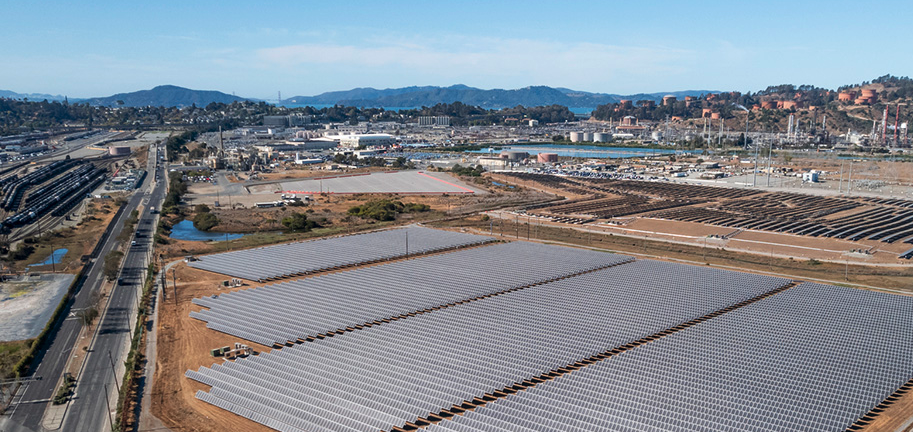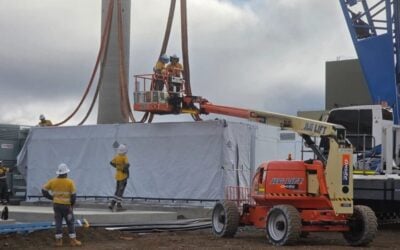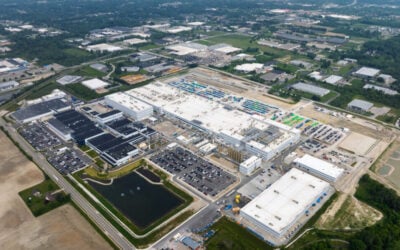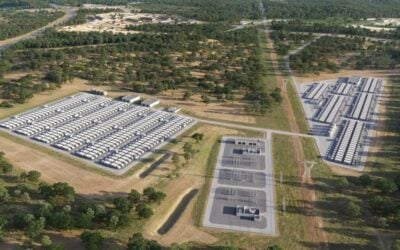
VPPs in California from MCE and PG&E/Tesla
Virtual power plant (VPP) programmes are being launched in California by non-profit renewable electricity provider MCE Clean Energy and investor-owned utility PG&E with Tesla.
MCE’s VPP programme will launch in 2025 in the city of Richmond. It will see the company install smart, clean energy technologies in up to 100 homes and commercial and industrial (C&I) sites to create a network of digitally-connected distributed energy resources (DERs).
Enjoy 12 months of exclusive analysis
- Regular insight and analysis of the industry’s biggest developments
- In-depth interviews with the industry’s leading figures
- Annual digital subscription to the PV Tech Power journal
- Discounts on Solar Media’s portfolio of events, in-person and virtual
These will include energy storage, smart thermostats, rooftop solar, heat pump space and water heating and EV charging. MCE will use the solutions to shift load out of the 4-9pm peak demand hours, reducing customer bills as well as strain on the grid.
The project has received US$3 million from the California Energy Commission and is also going to use the City of Richmond’s Social Impact Bond.
Meanwhile, PG&E and Tesla are launching a VPP programme which will aggregate PG&E customers’ Powerwall home energy storage systems, of which there are some 50,000.
It will also target the 4-9pm peak demand period along with the summer season, running between May 1 and October 31. Participating Powerwall owners will be paid US$2/kWh for exporting power to the system. Some reserve will be kept in the units so that homeowners can continue to use the batteries in case of grid outages.
It is part of the Emergency Load Reduction Program (ELRP) approved by by the California Public Utilities Commission (CPUC) last December to help prevent blackouts during peak demand hours with with 2-3 GW of new resources and incentives to reduce usage.
It isn’t PG&E’s first foray into VPPs, with the company having launched a pilot aggregating 100 solar-plus-storage home systems with technology providers Sunverge and LG Electronics last year. The programme combined LG’s energy storage systems and Sunverge’s DER software platform.
Financial close on colocated project with 50MWh BESS in California
Leeward Renewable Energy has closed debt and equity financing totalling US$121 million for a 100MW solar PV, 20MW/50MWh energy storage project in Kern County, California.
Banks Wells Fargo, MUFG and Silicon Valley Bank are providing US$58.5 million in Green Loan construction financing while J.P. Morgan is providing a US$62.5 million tax equity investment, a form of investment also recently used by a renewables platform backed by private equity firm TPG.
The Rabbitbrush Solar Facility, which features a 2.5 hour battery energy storage system (BESS), is expected to start operations in August 2022.
Energy generated by the facility will be provided to non-profit community choice aggregators (CCAs) Central Coast Community Energy (CCCE) and Silicon Valley Clean Energy (SVCE) through two previously announced 15-year power purchase agreements (PPAs).
Initiative to provide microgrids for two million Nigerians launched
Husk Power Systems, a company specialising in microgrids in Africa and Asia, has announced a new initiative to build 500 microgrids in Nigeria by 2026.
The “Nigeria Sunshot Initiative” aims to provide two million Nigerians with reliable, renewable energy by 2026 from solar-hybrid microgrids.
The company quoted government data saying that solar microgrids represent the lowest cost option for 8.9 million of the 19.8 million additional grid connections the country needs for universal electrification. Husk said it can provide 5%, or 400,000, of those connections under its initiative.
The programme has the potential to take 25,000 diesel and gasoline generators offline and electrify 700 public health clinics, 200 private hospitals and 100 public schools.
Husk recently committed to building 5,000 microgrids globally by 2030 in a 2022 UN Energy Compact.
Nissan launching second life battery project in Tennessee
Automative group Nissan is partnering with several Tennessee-based organisations to build two BESS projects using second life batteries at its headquarters in the city of Franklin.
The Japanese conglomerate is partnering with non-profit energy solutions companies Middle Tennessee Electric, Seven States Power Corporation and the University of Tennessee-Oak Ridge Innovation Institute on the project.
Battery packs form Nissan’s LEAF electric vehicle (EV) will be used to construct the BESS units. The packs will be assembled in modular, scalable storage systems to provide supplemental power supply and peak demand shaving for Nissan’s facilities.
Energy-Storage.news recently did an in-depth interview with a company specialising in second life application BESS projects, UK-based Connected Energy, which you can read here.
Another big automotive group, Toyota, has launched a 5.5kWh residential BESS product which will use the company’s EV battery technology, it announced in early June. It will have the ability to provide power to the grid in regions where regulations allow it, though is initially only being launched in Japan.






